Juice Master —
A few weeks ago, dufmanno reviewed Fat, Sick & Nearly Dead, a documentary about a fat man with a “rare” autoimmune disease* called chronic urticaria who begins a 60-day juice fast in an attempt to alleviate the symptoms of the disease and to lose weight.
We received a complaint from Lee, obviously a fan of the film, who found our sniping unfair. I responded to Lee with what research I dug up, but he/she never responded.
First and foremost, I’m not going to judge the filmmaker, Joe Cross, for deciding to fast as a means of alleviating the symptoms of urticaria. If a person suffers from a debilitating disease (and the pain and discomfort of the hives caused by chronic urticaria, basically an out-of-control allergic reaction, would definitely qualify as debilitating), then I fully support their desire to research and follow the treatment that they believe is best for them.
However, what Joe does with this film crosses the line from self-care into self-promotion and pseudo-science, and these are the issues that I wish to address.
The film begins with Joe explaining how “out of control” his life had gotten, and how his eating habits and his weight have caused his urticaria.
Fair enough.
But here are the facts: according to the International Chronic Urticaria Society (ICUS), certain foods and additives can promote histamine release, or can contain histamine, which exacerbates urticaria. Among the foods that are reported to induce urticaria are shellfish, fish, egg, nuts, chocolate, berries, tomatoes, cheese, milk, and wheat.
Now, here’s the interesting part: the ICUS-recommended histamine-restricted diet recommends avoiding oranges, grapefruits, lemons, limes, cherries, strawberries, raspberries, cranberries, loganberries, apricots, pineapple, dates, raisins, prunes, currants, pickles, spinach, and tomatoes.
Yet, you see many of these ingredients going into Joe’s juices throughout the film, and on Joe’s juice-shucking site they give a recipe for “Joe’s Favorite Juice” that is made of watermelon, pineapple and ginger. Also, at one point, Joe exclaims how much he loves spinach. Had Joe actually researched his own disease before he began his fast, he would have found that many of the ingredients he lived on were bad for the very disease he was supposedly treating.
Furthermore, research on fasting as a treatment of chronic urticaria suggests that although symptoms are alleviated during the fast, they return once the fast ends.
So, my question is, if fasting isn’t a long-term solution to chronic urticaria, and if Joe isn’t even following the histamine-restricted diet recommended by the International Chronic Uticaria Society to treat his chronic uticaria, then what the fuck is he doing?
Shilling, my friends. Shilling.
And what is he shilling? Is it a cure for chronic urticaria? Nope. It’s the cure for obesity and migraines and whatever else ails ya.
Joe’s theory is that his chronic urticaria, along with everything else he complains about, is caused by “toxins” in his system. The toxins come from the unhealthy, processed foods that he has been living on for years.
Now, my mom buys into the whole “toxin” theory, and has jumped from toxin-cleansing fad to toxin-cleansing fad. For almost a decade, she lived as a staunch vegetarian, but suffered from gastrointestinal distress throughout, and recently decided to live more as a pescatarian. Currently, she’s doing some kind of candida cleanse, which will supposedly flush out the bad bacteria from her gut.
The idea of “toxin cleansing” is the cornerstone of many holistic, organic or alternative approaches to health. And while I support your right to believe that “cleansing” one’s body of “toxins” will lead to better health, I remain a skeptic.
The problem is that there is absolutely no evidence that any of these cleanses do anything but cleanse the toxin of money out of your pocket. I’m sure there are such things as environmental toxins, but they are so pervasive in our society that there is no amount of fasting that will inoculate a person from their influence. We’re in a toxic culture; get used to it.
But Fat, Sick & Nearly Dead spends 97 minutes attempting to persuade viewers that fasting to “reboot” your system and cleanse the toxins from your body will lead to a long and healthy life.
The experts in the film include nutritionist Stacy Kennedy and Dr. Joel Fuhrman, both of whom are now writing blog posts for Joe’s site.
Fuhrman loves vegetables.
Fuhrman’s site promotes a dietary approach he calls “Nutritarian,” which is essentially a vegetarian diet, or as he describes it, “90% of the daily diet should be comprised of nutrient rich plant foods with health-promoting phytochemicals.” Clearly, he’s not merely a vegetarian with a book to sell. He’s totally different.
Of course, long ago I made a firm commitment never to take health advice from a guy who looks like Dr. Giggles.
So, Furhman’s totally on board for whatever juice Joe wants to pour down his gullet. Yet Fuhrman’s own research (a chart review, mind you, not a clinical trial) shows that the attrition rate for Nutritrarians is high at two years, when just 19 of 56, or one-third of the original patients, remained.
But Joe only relies on Fuhrman and Kennedy to provide some substantiation to his claims of authority. We quickly learn, however, that Joe wants us to see him as the expert on the juice fasting lifestyle, despite the rather thin mask of authority.
My favorite example of Joe’s “authority” comes from a segment in which Kennedy explains why fruits and vegetables are vital for good health:
The closer a food is to its natural state, the healthier it is. So it’s like, why are fruits and vegetables good for you? Micronutrients are essentially your vitamins and minerals. Where do we get these micronutrients? They are predominantly found in plant foods.
Okay, that makes sense, nutritionist lady. Plant foods have the micronutrients we needs. Got it.
Of course, then Joe has to chime in and fuck it all up:
I found out that food can be divided into two camps: micronutrient and macronutrient. Micronutrient foods are vegetables, fruits, nuts, seeds and beans. Macronutrient food is everything else.
No, Joe. Just stop.
Food cannot be divided into micronutrient foods and macronutrient foods, you idiot. Now, you can have micronutrient-rich foods, which are the fruits and vegetables, but there is no such thing as “micronutrient food,” let alone “macronutrient food.” You just made that shit up.
All foods are macronutrient foods, you dolt. Macronutrients are the three major categories of food: carbohydrates, fats and protein (and alcohol, if you want to get technical). If you can eat it, it is made of macronutrients.
Vegetables are mostly carbohydrates with a few protein exceptions, such as beans.
But Joe’s desperate attempt to categorize “good” micronutrient foods and “bad” macronutrient foods is exactly the kind of mindless pseudoscience he’s peddling.
And, sadly, his acolytes regurgitate this nonsense without question.
The “science” of juice fasting as a long-term solution to everything plays a minor role in this mockumentary (in this case, Joe is mocking actual science). The “heart” of the film belongs to the second half, when Joe meets Phil, and their relationship inspires Phil, a truck driver who also suffers from chronic urticaria, to begin juice fasting.
Ah, yes, nothing brings a film to life like the relationship between teacher and student, mentor and apprentice, master and padawan. We get a real glimpse into Joe’s compassion and humanity as he personally guides Phil through his own 60-day juice fast at a lakeside resort in Iowa.
Oh… wait… no, I forgot. Joe drops off Phil at the resort and then returns to Australia.
So much for the buddy film.
In the end, what we really see is that in exchange for two months at a resort with all of his food paid for, Phil, a truck driver, loses a significant amount of weight through juice fasting. He then goes home, quits his job, and continues dieting and exercising, eventually going from 429 pounds to 225 pounds.
That’s an impressive amount. I’m sure it’s a permanent change, right?
According to an interview Joe gave in August, Phil now weighs 250 pounds. Also in August, Phil went MIA from his Twitter account. Likewise, Phil’s brother, Bear, who also begins a juice fast in the film, has apparently abandoned Joe’s reboot as well.
The problem, in my opinion, is that Joe goes from one extreme to the other. At one point, he enters a pizzeria in New York and points to the pizzas on display. He says something like, “At one point, I would have eaten two of those. Not two slices, two whole pizzas.”
Now, I know some people who LOVE pizza, but I’ve never met ANYONE who can eat two whole pizzas in one sitting. If Joe seriously ate two large pizzas on a regular basis, then I think I can pinpoint the source of his health problems.
Likewise, Phil is a truck driver, which is a job that does not easily accommodate healthy lifestyles. Exercise is hard to come by and healthy, nutritious food even more so. In order to complete the 60 day fast, Phil had to quit his job, which is fine if you’re the subject of a documentary, but not so much in the real world.
The only time Joe makes any real sense is when he says, “It doesn’t seem logical to not eat food” and “When you’re not eating food, it just doesn’t seem normal.”
It’s not normal, Joe. What is normal is some schmock profiteering off of the fear and self-loathing of fatties by offering an unproven “cure” for everything from migraines to obesity. You aren’t a weight loss messiah, and you aren’t offering anything new. Desperate fatties have tried everything under the sun, including juice fasting and just plain fasting fasting, to lose weight, and none of these solutions work.
What does work is eating a healthy, balanced, intuitive diet that respects your cravings and desires, while getting as much exercise as you are capable of without wrecking your sanity through stress and self-flagellation. Moderation is the key to health, Joe, not micronutrient foods.
*By rare, Joe means that 15% to 23% of people have urticaria, or a standard allergic reaction, while a quarter of those people will have the chronic version. That breaks down to around 3.75% to 5.75% of people having this “rare” disease. To put that in perspective, the rate of morbid obesity in the United States is 5.7%. Therefore, according to Joe Cross, morbid obesity is a rare disorder.


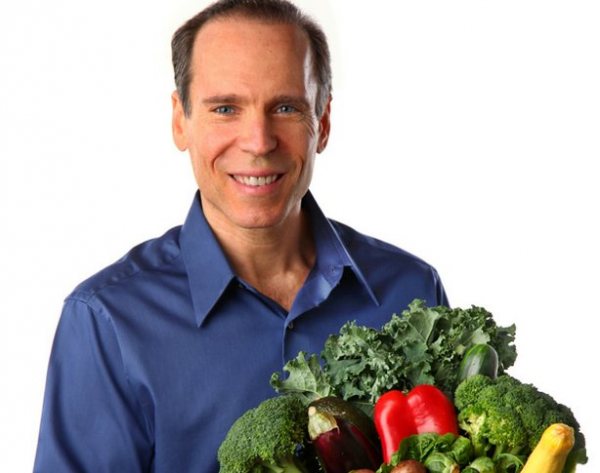







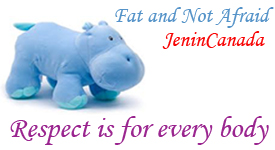

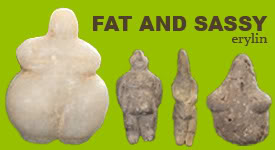
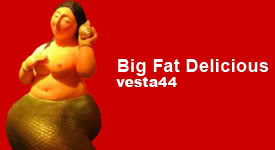




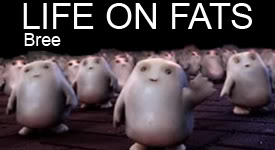
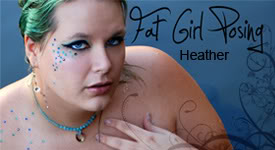


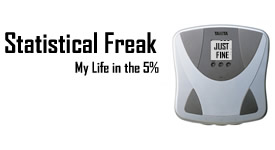
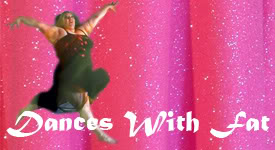

I thought that name sounded familiar - Dr Joel Fuhrman also has a book called Eat to Live, which the surgeon who took out my enlarged thyroid recommended to me as a good way to lose weight (a lot of the people at the hospital are following his diet). I did a post about it here. I told her thanks, but no thanks, a diet was a diet was a diet, and I’d been on too many of them to want try another one and have it fail too. Insanity is doing the same thing over and over and expecting a different result each time - I may be crazy but I’m not insane.
“Insanity is doing the same thing over and over and expecting a different result each time” I see this phrase a lot and just wanted to say that I really dislike it as do many people who are actually mentally ill.
What word or phrase would you suggest using instead to convey the same general idea?
Mulberry, thanks for asking! So basically what vesta was trying to say was “i’m not insane enough to go on another diet!” (in this case crazy or insane would both be inappropriate). The best advice that I’ve ever read on the topic was “think of what you’re trying to really say and just say that” so, if it were me, I’d say
“I know too much to go on another diet”
“I respect myself too much to go on another diet”
“Dieting is ridiculous and illogical”
“Dieting is a scam! No thank you!”
“I can think for myself, thanks!”
Sometimes you have to rearrange the words or use a different phrase (it’s not just a straight swap of words all of the time). My favorite word to use instead of “crazy” is “ridiculous”. of if you’re talking about how chaotic something is (the store was crazy today!) I like to use “wild”. I could also just say “ridiculously busy”. Instead of saying “that’s crazy!” I tend to say “that makes no sense! ridiculous!” etc, etc. Fat acceptance got me into a whole world of inequalities- I wasn’t really a feminist until I discovered fat acceptance! Anyway, ableism was one of the things that I discovered and, being mentally ill myself, I finally started to understand how ableist language effected me personally, the culture of stigma around mental illness, and how it effects others.
It’s not just that I was saying I wasn’t “insane” enough to go another diet, it’s also that doctors are doing us all a great disservice by recommending diet after diet after diet when they know that diets don’t work for the majority of people but they keep on recommending them as cures for everything that ails a fat person instead of looking for the real causes of those problems. I couldn’t think of another way to phrase it that explained it any better than the way I said it.
I also have mental health issues and that phrase has never been an issue for me, in spite of the fact that a so-called friend told me I was crazy enough to need to be institutionalized.
An interesting side note on the “definition of insanity” quote… it is often misattributed to Benjamin Franklin, Albert Einstein, Confucious or Mark Twain when, in reality, it was first recorded in a 1981 NarcAnon book.
I tend to think that context matters in these cases. On the one hand, I think the “definition” is a gross over-simplification of mental illness and can be insulting, but on the other, there is an element of “insanity” (or, more accurately, irrational optimism, which can be a form of mental illness in some), in doing the same thing over and over and expecting a different result. I think that using this quote to underscore the futility of weight loss makes sense. If you keep trying to lose weight, only to regain it and try again, then you are engaging in an irrational pursuit. Are all insane people irrational? No. But the connotation of “insanity” is different than mentally ill (IMO). Mentally ill can refer to the broad range of mental illnesses that people have, while insanity implies an acute detachment from reality. So, in that sense, our societal acceptance of dieting as the “solution” to health and weight issues is a completely detached from the reality of the experience, which suggests a sort of collective insanity.
Now, the caveat to all of this is that I’m not mentally ill myself (unless you count ADD), so I have absolutely no authority in saying what is or is not offensive. But at the same time, Heather doesn’t speak for all mentally ill people either, only those who she has spoken with. That being said, it is best to take Heather objection as her own expression of discomfort and keep it in mind in the future. Whether you choose to respect her wishes or not, I think it’s important to respect her feelings about it.
Peace,
Shannon
Vesta44, all a diet is is the kinds of food that a person, animal, or community habitually eats. Are you talking about a weight loss diet? Everyone is on a diet.
In Japan MS is non existent and obesity is low. The Amish don’t have autism and they are healthy. Americans are sick with diabetes, cancer and heart disease. Some people think it is diet related. What do you think?
Many people think that most disease is diet related. Do you agree?
Despite the almost non-existant levels of obesity in Japan, they still have diabetes rates comparable to the United States at 7% (PDF).
And while the Amish have a life expectancy of 72, comparable to Americans, the number one killer of the Amish is heart disease. As far as autism in the Amish, there are plenty who would make the (flawed) case that the difference is due to vaccinations.
I think that disease can be diet related, but it is more often diet/genetics/environment related. A completely ignored contributor to disease is stress, and we are living in some of the most stressed times our society has ever faced. Do you agree?
Peace,
Shannon
I was researching Autism and vaccines when I discovered that Amish kids don’t get Autism and now 1 in 130 kids get it. I heard some people saying it was dietary but kinda doubt that.
According to US Government Statistics, the average life expectancy for Amish Caucasian men is 74.3 and for Caucasian women is 79.9 or 77.1 years. http://www.amish.net/faq.asp
Researchers discovered that the life expectancy of a 30-year-old vegetarian Adventist woman was 85.7 years, and 83.3 years for a vegetarian Adventist man. This exceeds the life expectancies of other Californians by 6.1 years for women and 9.5 years for men. Non-vegetarian Adventist women in the group had a life expectancy of 84 years, and non-vegetarian men, 81 years.
http://lifetwo.com/production/node/20070107-longevity-seventh-day-adventists-life-expectancy
The US is ranked 36th in the industrialized world for longevity.
http://en.wikipedia.org/wiki/List_of_countries_by_life_expectancy
As to diabetes here is that info:
China 20.8 million cases
U.S. 17.7 million cases
Japan 6.8 million cases
China has 1,339,724,852 people
USA has 312,810,000 people
Japan has 127,720,000 people
Modern food is a the cause of diabetes.
The longest lived Americans are the 7th Day Adventists. They are lacto ovum vegetarians.
http://www.rd411.com/index.php?option=com_content&view=article&id=1458:seventh-day-adventist-diet&catid=89:allergies,-intolerances-and-special-diets&Itemid=383
Seventh-day Adventist Diet
Seventh-day Adventists eat a lacto-ovo vegetarian diet, one that allows milk and eggs, but not animal flesh. This is because they believe that whatever they eat and drink should “honor and glorify God and preserve the health of the body, mind, and spirit.”
Seventh-day Adventists have followed this diet for more than 130 years. The health recommendations were formed based on a combination of the biblical principles of the Levitical laws, the emphasis on self-control promoted by Seventh-day Adventists, and the emerging health and hygiene principles of the 19th century.
Research findings
A multitude of clinical studies have used Seventh-day Adventists as the study population. These studies have proven that most Seventh-day Adventists are healthier than other populations. In general, Seventh-day Adventists have a 50% lower risk of developing heart disease, certain types of cancers, strokes, and diabetes.
A study of Seventh-day Adventists published in 2000 showed that the 34,192 self-identified California Adventists who were followed for 12 years lived, on average, 7.3 extra years for men and 4.42 more years for women, when compared to other non-Hispanic Californians.
There is no doubt that diet effects health and longevity and that getting off processed food and avoiding meat is a good thing. I found Vesta’s article interesting and thought provoking. Dietary changes can be a good thing. If a doctor recommends them as a treatment for a disease it is a lot better than taking medicine.
Don’t be so patronizing to Vesta. She talks about weight loss in the previous sentence - it isn’t THAT hard to figure out which meaning of diet she intends.
Some people thought pancreatic cancer was diet-related (in your sense of the word “diet”). Didn’t work out so well for Steve Jobs.
From what I’ve read, I tend to agree with Atchka that stress is an overlooked component in many diseases. Environment, nutrition, genetics, aging, infection, stress - there are many causes to diseases, including some we have yet to tease out (prions, anyone?).
In the meantime, I’m happy to be living in a time and place where I can live long enough to have a greater chance of suffering some of the diseases which are more commonly found in old age.
Danokan - Excuse me! Maybe I should have clarified that for you by saying weight loss diet. I’m sorry that you took my words out of context and jumped to conclusions that weren’t there. And not everyone is “on a diet” if you want to pick nits. Everyone has a diet that they eat - meaning the food that they eat on a daily basis. But usually being on a diet means one is restricting calories for weight loss. If you had really read what I said
you would have known that by “diet” I was talking about a weight loss diet, not a general way of eating that isn’t restricting calories.
Often the side effect of a therapeutic diet is weight loss.
But more often than not, that weight loss is not sustained. I can provide plenty of resources on this if you like.
Peace,
Shannon
Fat Bastard,
I just received a call from the person whose email address you hijacked. Good try this time, but your writing style is so pathetically transparent that you would have to hire another troll to do your dirty work if you expect to get away with it for long. Seriously, it’s time for you to get a hobby now, child.
Peace,
Shannon
Danoken,
I’m replying here to avoid noodling text.
That’s weird. I got that life expectancy from that same Amish site and for some reason put 72. My bad.
In any case, I have no doubt that observant Seventh-Day Adventists live to the ripe old age of 83-85, but you’ll notice that the change in diet accounts for just a 2 year difference against the non-vegetarian Seventh-Day Adventists. You can’t compare this group to average Californians because Seventh-Day Adventists are also more likely to abstain from alcohol, cigarettes and marijuana as well, all of which can have an impact negative impact on one’s overall health.
So, the question is: what kind of life do you want to live? Do you want to live like a Seventh-Day Adventist to 85 or do you want to live life like the average Californian to 73-80?
There is no doubt that an excess of red meat can have a negative impact on one’s health, but there is middle ground. How would those lacto ovum vegetarians compare to, say, pescatarians or people who eat only lean cuts of meat? I would imagine there are minor dietary differences such as those that would mitigate the life expectancy somewhat.
As far as diabetes rates, I was basing my number on estimates presented by the Japanese Ministry of Health, Labour and Welfare (PDF), which says that “7.4 million people were strongly suspected as being diabetic, and 8.8 million people were candidates for diabetes.” That would put their rate at 6% to 7%. But using the statistics you cited would make it 5.3%. Your US stats are a bit out-dated, as the current rate is 18.8 million according to the ADA, making the US rate 6%.
Asians are particularly susceptible to diabetes due, in part, to abnormal beta-cell function. But, regardless, it is clear that obesity itself is not the most important risk factor for diabetes. In my view, obesity can be a symptom of insulin resistance along with diabetes, and obesity can exacerbate diabetes, but it does not cause diabetes. The two are mutually exclusive.
I also believe that an even more important contributor to diabetes than diet is exercise. It is well-accepted that a modest, and sustained, weight loss of 5-10% is enough to have a profoundly positive impact on diabetes. The key, though, is exercise. Improving one’s cardiorespiratory fitness will build lean muscle, which improves insulin sensitivity. I am physically active, but I’m also 265 pounds. If I lost just 5-10% of my weight, I would we between 239 and 252. At 5’7″, that would give me a BMI between 37.4 and 39.5, making me still obese, and most people would physically identify me as fat.
An interesting side-note is that Japan has some of the lowest rates of heart disease in the world (30 per 100,000 people). So, if diet is the most important contributor to disease, then why the disconnect between Japan’s diabetes and heart disease rates? There has to be something more at play here. And that something is genetics.
Anyway, my ultimate point is that the choice of whether or not to be a vegetarian is not the only health choice available to us. There are sedentary vegetarians out there who are doing themselves no favors either. There are also alcoholic vegetarians and vegetarians mountain-climbers, all of which can negatively affect a person’s health and mortality. Choosing the “healthy option” in one area of your life does not guarantee you health in all other areas.
So, if people want to present the data on why their particular lifestyle choice is best for the world, go for it. But I’m totally against the kind of badgering and misleading pseudoscience that people like Joe use to promote their philosophy. Joe spends a lot of the film whining about how he doesn’t understand why people won’t just try his juice fast. Well, Joe, not everyone is making a career off of promoting a vegetarian lifestyle, and not everyone has the time, energy or interest to become vegetarians. I prefer to help people find a path to health that they are comfortable with and can sustain for a lifetime, and the attrition rates for vegetarian or vegetarian-esque lifestyles (such as those promoted by Fuhrman or Dean Ornish) are ridiculously high. And there is much more damage done by switching diets like you’re changing clothes, and the subsequent weight cycling that wreaks havoc on your metabolic system.
Anyway, sorry for the long reply, but I thought your comments deserved a full response. While I agree that the vegetarian lifestyle has health benefits, I don’t believe most people are capable of sustaining that lifestyle long-term.
Peace,
Shannon
http://en.wikipedia.org/wiki/Micronutrient_deficiency
Micronutrients are very much real.
Hi Danokan,
Welcome to Fierce Fatties. I didn’t say micronutrients aren’t real. I said that there is no such thing as “micronutrient foods” or “macronutrient foods.” That’s just something Joe made up out of whole cloth. He said that vegetables weren’t macronutrient foods. That’s ridiculous. Vegetables are comprised of both macro and micronutrients. The man is clueless.
Peace,
Shannon
I suffer from dermatographic urticaria (as I’ve mentioned in posts before) and, while it’s a cool party trick, it can be painful, itchy, and can interfere in my life quite a bit sometimes. I can’t imagine having chronic urticaria (hives lasting longer than 6 weeks)- mine fade in about 15 -20 minutes once the irritant is gone (or, it’s emotional related, then after I take some benadryl). I’ve seen all kinds of “miracle cures” for this condition- veganism (which I am, but for ethical reasons only), raw foodism (tried it, didn’t work), gluten free (tried it, didn’t work).. i think the juicing would fall somewhere under the raw foodism. While I agree that getting lots of fruits and veggies are great for your health.. prescribing them as a cure for *anything* is ridiculous. Diet changes can certainly help control some conditions.. but it’s not a cure and it never controls the condition completely. It seems as if the people pushing this juice fast are simply preying on people’s desperation.
This will seem terribly simplistic after your well-researched post (you need to write a book, and I am not being a smart ass!) but I just wanted to say that the anti-fat brigade often screams about how awful juice is, that it’s “no better than soda” and is “loaded with calories” and if you drink juice rather than eating whole fruit you are a lazy fatty fatpants. Furthermore, according to this doctrine, one is to eat very little fruit and mostly vegetables.
I rarely drink soda but happen to love drinking juice. It’s full of nutrients. Joe is right about the juice being healthy, but I certainly agree that the rest had very little to do with promoting any potential benifits to people suffering from debilitating skin conditions and much to do with promoting “anti-obesity.”
Thanks Faycin, I’m actually working on a book now. I’m almost done with the second chapter! It’s going to be a barn-burner, too. I’m very excited.
As far as the juice thing, critics are typically talking about the bottles of juice you find in the store, while Joe is promoting juicing, which uses fresh fruits and vegetables that he puts in a juicer. The difference is mainly in the amount of fiber included. Fresh juiced fruits and vegetables retain much of their natural fiber, which makes them thicker and slightly “chunkier” than store-bought juice. Store-bought juice is essentially skimmed of all fiber, and while they can still boast micronutrients (in 100% juice), the lack of fiber and the abundance of sugar makes them not much better than soda in terms of nutrition.
But I think that between the two, juice is a better choice. You’re still getting some nutrients. But the main issue (sugar) is still present in both juice and soda. That’s why I think that if they were going to do a soda tax, they should include fruit juice and diet soda. It’s not like getting people to switch from Coke to Snapple or Diet Coke is a huge improvement. All three have their nutritional flaws, and simply shifting consumers from one to another won’t make any significant difference in terms of health or nutrition.
Since starting to drink more water, I notice that I feel “sugared out” when I drink too much soda, and I don’t enjoy it nearly as much as I used to. I still LOVE juice, but even that seems to be too much sometimes. But that’s what my body says. Your body may say something different, and that’s what really matters.
Peace,
Shannon
I would love to get into fresh juicing. My parents had a juicer when I was a kid and it was great. Not to get into details bemoaning my living circumstances but they are kind of bad so it isn’t really an option at the moment though maybe I could do it at my son’s apartment! I tend to prefer the natural brand juices such as Hansen’s to the commercial brands like Minute Maid. I could be wrong but I think they’re less processed.
I’m sorry, Atchka, the blogs I read all run together so I don’t remember your general Fat Acceptance philosophy, although I remember that you were emphatic about it. What you seem to be saying here is that this guy is fat because he is eats badly and doesn’t exercise so instead of messing around with stupid fads he should just exercise and eat correctly and then he would be thin. You say that in the last three paragraphs: “Desperate fatties have tried everything … to lose weight, and none of these … work. What does work is eating a healthy, balanced, intuitive diet … while getting …exercise … Moderation is the key to health, Joe, not micronutrient foods.” Also in earlier paragraphs you say that the source of the guy’s health problems is that he does things like eat two entire pizzas in one session and that it’s problematic that the guy is a truck driver since that is a notoriously sedentary job.
Is that really what you meant to say or did you get carried away in hatred of the pseudoscientific fad? I ask not as passive-aggressive disagreement but because it’s a more pro-diet opinion than I usually see in FA blogs.
I don’t exactly disagree. FA blogs have lots of people who say they can’t lose weight on a diet, but maybe they are not typical. There are obvious reasons for such people to be overrepresented in FA spaces. Personally I went on Jenny Craig twice and I lost weight both times so that indicates to me that exercise and a balanced diet would make me lose weight. I’ve seen lots of diets blogs by people who have lost weight and have many times seen it repeated in FA blogs that it is far easier to lose weight than to keep it off (thus implying that losing weight is a thing that happens).
So my feeling is that decades of experience have sort of shown how short-term weight loss happens and that when new diets come along the amount of actual effectiveness they have is due to their similarity with all the other diets. Therefore, if you must mess around with diets, why not go with the balanced-diet-moderate-exercise diet which is equally effective as anything else you will run into and has the advantage of being healthier than the others? So I agree that I’d rather the guy tried the standard diet instead of going right from bad eating habits to this fad thing.
I disagree with you that the standard diet would actually work for the guy. I mean it’s pretty simple and well-known: balanced diet, calories restricted to just a little below maintenance, reasonable exercise. And yet here we all are, fat. It’s not because we are all doing it wrong. However, even if the guy isn’t able to actually become and stay thin on the standard diet maybe the healthy food and exercise would make him a little healthier. Sometimes “losing weight” and “healthy” just isn’t possible and you have to settle for “healthier” or “as healthy as possible”.
I disagree with you that the fad is bad because it is not normal. Why should I love normal? Normal is to be fat and have everybody be contemptuous of me because I don’t have the willpower to stick to the standard diet. Medical technology involves all sort of abnormal activities: sticking glass in front of your eyes to see better. Cutting people open with knives to take out bad appendices. Insulin shots and unnatural diets for diebetic children for their entire lives.
The problem with the pseudoscientific fad is not that it is abnormal but that there are SO MANY fads. It never stops. It’s like we are performing monkeys being taunted by the mocking bystanders: Hey, let’s make them only eat pineapples. No, carrots. Fast. Eat all the time but only a couple of tablespoons at a time. Drink gallons of water every day so we can watch you run to the bathroom all the time. Keep on making up reasons why particular foods are evil until all possible foods have been covered so our monkeys are wrong no matter what they do. Feed them tapeworms. Cut out their stomachs.
You say you think that they guy ended up regaining weight. I hate that. I cannot imagine anything more humiliating than to brag to all the world about your weight loss and how very happy you are to no longer be a disgusting loathsome unhealthy fatty, to have the whole world praise you for deciding not to be a disgusting fatty anymore, and then a few months or years later to have to show yourself fat again. It’s like the fat haters purposely egg on the dieting person to say the most hateful anti-fat things possible so that when they get fat again they have the particular pain of getting hatred not just from others but from their own earlier selves.
Happy Spider,
Excellent observations and I totally see where you’re coming from. I made the leap from saying that diets don’t work for losing weight, but that balanced diet and exercise did work. Completely not what I meant. There’s a glimpse of what I meant when I wrote “Moderation is the key to health.”
What I was trying to get across is that using caloric restriction through fad diets to lose weight doesn’t work, either in terms of sustaining long-term weight loss or improving health. Eating a healthy, balanced diet and exercising, though, does improve your health if detached from weight loss as the metric of health. I’ve written on the subject of weight loss for so long, and so exhaustively, that I think that I tend to mentally fill in those caveats without including them for the reader. So, I apologize for this error of omission and any confusion it may have caused.
Now, I do believe that some people who do change their diet and begin exercising may experience weight loss (particularly someone like Phil who got little exercise and ate mostly fast food), but that should neither be the aim nor the metric by which we gauge success. Make the lifestyle changes and forget the scale, that’s how you create lifelong, positive health changes.
The reason this lapse slipped through is that I do all the proofing for FFFs and it’s a pretty well-known maxim or axiom or platitude or Plantagenet that you can’t proofread yourself. And by the time I get through writing an 1,800-word post, like this one, I just don’t have the mental energy to go back and proof it. Ninety-nine percent of the time, my writing is straight from the horse’s ass.
So, no, I didn’t mean to imply that there is a right way to lose weight. As you said, there are plenty of ways to temporarily lose weight, but in terms of significant (greater than 10% of your starting weight), long-term (greater than one year) weight loss, there is no solution for the vast majority of people. But making sustainable changes to your lifestyle, thus improving your health, is definitely possible for all people.
Hope this clarifies, and thank you for bringing it to my attention.
Peace,
Shannon
Happy Spider, you nailed it with your last couple of paragraphs. The world in general doesn’t want to see us thin; they want to see us act like jerks in pursuit of thinness. “performing monkeys and mocking bystanders” - EXACTLY. Bullying us while they take our money and try to make us feel like the guilty ones.
And this is why I’d rather be considered a “disgusting loathsome unhealthy fatty” than be complimented for weight loss. Because I don’t hear the compliments as compliments. I hear them as people saying, “see, I told you how disgusting and subhuman you were and you finally kissed my ass and listened to me!” Probably congratulating themselves for being brave and heroic enough to confront the fatty, and all set to shame somebody else.
You said, “I cannot imagine anything more humiliating than to brag to all the world about your weight loss [...] and then a few months or years later to have to show yourself fat again.” That shows a lot of self-hate, doesn’t it? People deliberately put themselves on the spot, knowing how embarrassed they’d be to regain the weight, and thinking that the potential embarrassment would offer some extra motivation.
It’s my opinion that fat as stigma is itself a great health risk and we’ll never know just how dangerous fat is or isn’t until we can beat back that stigma. Where would we even find a modern-day control group of fat people in western society which hasn’t been stigmatized?
Danoken,
Due to the fact that your IP address comes from Embarq Corp., which a notorious troll has used in the past, I have sent an email to the address you have registered under requesting verification. I have also left you a voicemail at your place of business (since your email is from a business and your last name and email on that page match up).
In order to continue commenting on our site, you must verify your information, otherwise I will delete all future comments. After almost a year of harassment, my Fat Bastard sense is pretty sharp, and I could sense something was off from the moment you first posted.
Oh, and I assume that you are the person who has been searching for the term “I hate fierce fatties” on a daily basis for the past few months. All I can say is, you are a sad, pathetic little man and if this is how you choose to spend your free time, then there isn’t a single thing that you can say about me, our bloggers or our readers that can eclipse your own pitiful existence.
If you are indeed the person behind this email address, then I apologize for the confusion and I look forward to your verification.
Peace,
Shannon